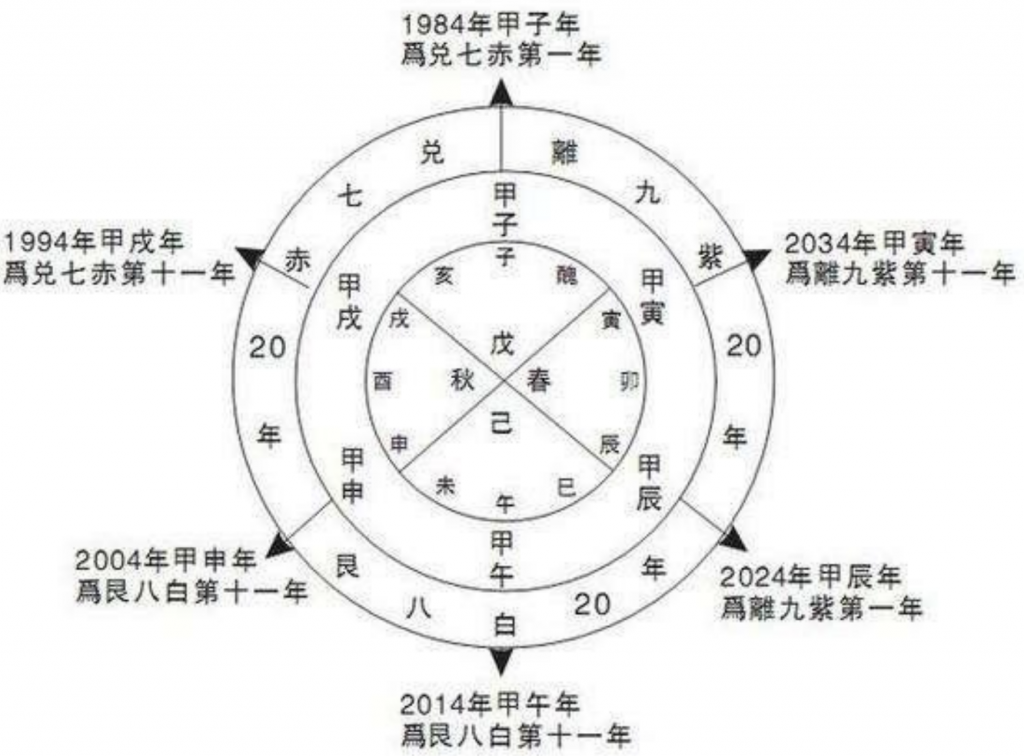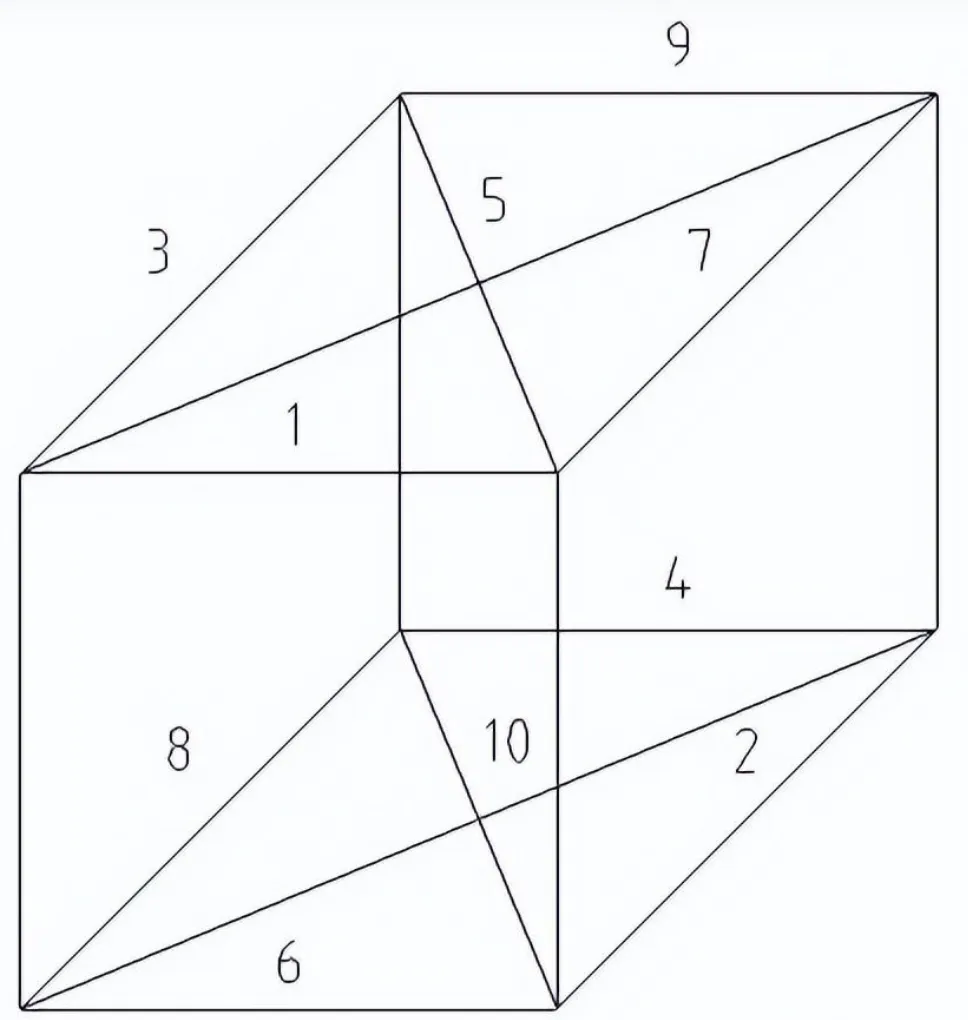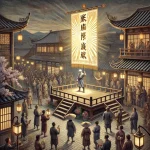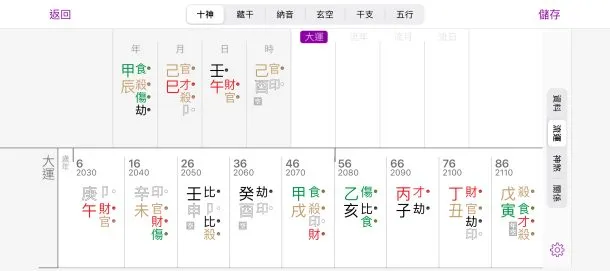Feng Shui has always been a bit of a bane in the Chinese metaphysics industry because it’s the part which gets weaponized as a tool to scam the most. It has been going on for decades and worsens each year. I don’t think I need to remind anyone of the stories I’ve been posting on my social media about how Feng Shui items do nothing and how some ‘practitioners’ are just outright scammers in sheep’s clothing.
This post is my first attempt to show everyone what Feng Shui is and isn’t. It won’t cover everything, so treat it as a primer to this ancient, complex subject.
I know it’s been a while since I spoke about anything on Feng Shui. It’s a very convoluted field, given how many schools of feng shui there are, and finding a unifying theory is difficult because the different schools are fighting amongst themselves. Feng Shui is a lot less inspiring to write about because it’s harder to use it as a medium to communicate certain philosophies I deeply believe in – because we know most Asians only think about getting rich, whereas some just want to get laid. Feng Shui as a topic doesn’t make you look at your life differently philosophically, which is why there’s no urge to write about it, especially when you know my style and what drives me to write.
Feng Shui is, unfortunately, the reason why many people fall into the pitfalls of Chinese metaphysics. They think of it as some magical panacea to everything in life. Feng Shui is also the prime reason why the Chinese metaphysics field gets pretty twisted because it provides a platform for imbeciles, whom I know have no respect for the art at all, to sell useless things.
I want my readers to remember this old saying I’ve mentioned before, which is that 「七分命理不出门,三分风水走天下」。 It’s extremely easy to come across as a “feng shui master”, even if you know less than 30% of what it truly entails. This is why you will always see ‘feng shui masters’ emerge from nowhere and say they wish to specialize in feng shui only – because it’s easier to bamboozle someone using Feng Shui. But I guess it’s also come to a point where ‘practitioners’ are doing the same for BaZi, Zi Wei Dou Shu, or Qi Men Dun Jia.
I always found it fascinating that some ‘practitioners’ can so proudly proclaim that Chinese metaphysics can help you achieve breakthroughs in your life, but the next thing they do is try to sell you an item. It is an extremely oxymoronic act perpetuated by real morons. I have no qualms with people selling items and charms, but please keep it as that. To package yourself as a practitioner to sell these items and charms is just something I’m very against. Some even go as far as to try a ‘feel-good’ cult using feng shui.
I’ve not come to a point where I can write passionately about Feng Shui as I do about other topics, but I think I’m slowly getting there. Feng Shui is under the Chinese metaphysics umbrella, after all, so I guess I have to write about it at some point, but it’s hard to find a thought-provoking angle. You can find the archive of my Feng Shui-related posts here: Feng Shui Blog Posts.
Some of the things I say in this post aren’t new, and bits of it will feel like a recap, but with some added insights now that I’m a lot more seasoned compared to the earlier days when I first wrote about Feng Shui topics.
I don’t know if anyone knows this, but I cringe when people call me a “feng shui master“. You can call me a “feng shui practitioner” or “consultant”, but the word “master” makes me uncomfortable because I am still on a learning journey, and I think I always will be. If anyone is thinking, why does your website URL have the word “master” in it? Be my guest and try the different permutations of my name and see what you get.
Now, let’s talk about Feng Shui.
You Are Meant To For The Feng Shui You Deserve
This is something that I’ve been saying a lot more on my social media as a quick message and reminder to people. It’s a notion that many people don’t appreciate: the kind of feng shui we eventually end up with is, in a way, fated, destined, meant to happen, or whatever word you wish to use. This shouldn’t surprise anybody because if our charts can tell us what kind of spouse we’ll end up with and how events unfold for us, then surely it should also play a role in determining the kind of house we end up with. If you want a good spouse or good things to happen to it, your BaZi chart had better be worthy of it because if it is not in there – it’s not in there.
The same goes for Feng Shui. You need to deserve good Feng Shui.
My readers will know that I’m not shy about delivering harsh truths. Our BaZi charts, or Heavens for that matter, decide many things – what we deserve and don’t deserve. When I use words like “deserve”, I want people to be reminded that I don’t come from a position where I decide or judge such things – our charts do. I use the word “deserve” because it’s a way to go against the way Chinese metaphysics is being sold, which is that it can give you quick fixes and that you can get anything you want, or anyone can end up in a place with good Feng Shui. A good life or a place with good Feng Shui is not something you can buy, and I think everyone should have some basic level of common sense to understand this.
The saying that “people with good karma/fortune will be in a place of good Feng Shui” or 「福人居福地」 is something people need to appreciate but also take very seriously. Our ancestors and Feng Shui legends from the past believed in it, and they did not say such things lightly.
I think the question most people would ask is, “Why is it so?” The simplest answer is that it’s meant to be that way because that’s how nature’s laws unfold.
It’s the same idea as why a married couple’s BaZi, or a family’s BaZi, will always paint the same picture because everything is part of a coherent picture bound by these laws. If a person’s chart says that he or she will have a challenging marriage, the spouse’s chart will paint the same picture. If your chart says you will have morally reprehensible parents, you can be assured their charts will say the same.
What I am trying to emphasise here is that all these things we can see in your chart can also be assessed through one’s home. I’ve illustrated this time and again in my blog posts. The keyword here is “coherence” or “congruence”. Nature’s laws won’t contradict each other.
Feng Shui is also an expression of 「在天成象, 在地成形, 在人成事」, meaning “As Above; So Below”. Whatever is reflected in the Heavens will have a physical manifestation on Earth. One’s house is simply one of those physical manifestations. Feng Shui is undoubtedly more popular because it gives people something physical to work with, and it is also a physical space where we spend most of our lives, and we can even try to alter the environment. In contrast, BaZi works with the ethereal and things we can’t see, as with all other forms of astrology.
The benefit of discussing whether good Feng Shui is something one deserves is that it grounds us and our approach to it. We can tap on Feng Shui, of course, but it should not be seen as something humans can easily manipulate.
Feng Shui Tells A Story Of Your Life
Many people are obsessed with Feng Shui because it is seen as a tool that can alter the course of one’s life. As a practitioner, of course, I believe in that. Feng Shui can influence one’s life.
However, I will be honest here and say that I’ve not been able to witness this yet because I have not encountered a scenario where someone with a bad BaZi chart is staying in a place with good Feng Shui. I need to remind everyone that the assumption that any individual can easily apply Feng Shui is a huge assumption. As huge as the dream of having Blackpink as my client someday, but we all know that’s not happening.
Challenging that assumption will get you to approach Feng Shui differently and more rationally, which I feel is important.
I’ve realized over the years that as much as Feng Shui can influence our lives, what Feng Shui does first is to tell a story, which is almost like a divination tool, just that we’re using geology. In other words, assessing the feng shui of a course is akin to reading the fortune or future of the people there. If we can use three coins to do divination, I’m sure the physical environment can do better. Suppose I did not study BaZi at all and I purely focused on Feng Shui as a practice: I will be able to tell the story of someone’s life and forecast their future by just using the signs I see in their living environment.
Why is this so? It’s because Feng Shui is also nothing but the process of 「在天成象, 在地成形, 在人成事」, that the laws of the Heavens will have some form of physical manifestation on Earth. Your BaZi and Qi Men Dun Jia divination all follow the same process. Feng Shui is, after all, a method of 取象 (‘qu xiang’) which I’ve tried to explain what it means in this blog post painstakingly:
In other words, if I see something in someone’s BaZi chart, any other Chinese metaphysical method I use should and will paint the same picture, and vice versa, including feng shui, because they are all based on the same fundamental law. Anybody who studies the Book Of Changes (易经) will know our ancestors viewed our human bodies as a ‘little universe’ on their own, and the same belief is applied to houses. If your BaZi chart tells me what a weaker area of your life or health is, your house should and will say the same.
Let’s explore this further.
The Synchronicity Of Feng Shui And Everything Chinese Metaphysics
This section will be somewhat confusing because it goes into topics like free will, how fate works, and how reality eventually comes to be.
The most commonly held belief is, “My house has a certain bad feng shui. I will just get a practitioner in to fix things and change my fate”. I want people to take a step back and think about the synchronicity and congruency of nature’s laws for a moment. Here’s a thought experiment:
The notion of whether you are fated to be able to change your home’s Feng Shui should be considered. If you get to alter your home’s feng shui and even build a house from the ground up, your chart is blessed enough to do so. If you are unable to, your chart isn’t as blessed enough for you to do so.
It is no different from why I can choose the best c-section date for parents in, but the child will not arrive on that given date and time because Heavens does not will it.
It’s extremely hard for someone to appreciate what I’ve said because we like to think we are in full control of the place we call home. It’s our choice, after all. But the funny thing is sometimes it’s this very choice we make that makes what the charts indicate come true. I am trying not to get into the topic of “free will” for now, as that is an extreme philosophical discourse to which I don’t have the answer. My years as a practitioner made me realize that things that are meant to happen will happen.
I believe in free will, but not in a way most people would interpret it. Most people think of “free will” as getting to do whatever they want, and they can desire whatever they wish. It is as tempting as it is dangerous to think this way. The paradox here is exactly this clinging to one’s desires that suggests one is not that free after all.
I’ll use relationships and marriage as an example, which is usually the most relatable. Every failed marriage started with some whirlwind romance where everything felt right and magical. Things change eventually, and people are left wondering why they made the decision back then, especially when they felt they were in full control of their choices. Every business decision felt like free will. Were they?
It’s no different when it comes to Feng Shui and the house you eventually end up in. Certain circumstances, biases, and timing of events will determine where you end up, and you will realize your astrological chart and house paints the same story. You might think you are exercising free will when choosing your house, but the more houses I audit, the more I realize it’s not the case. So many things need to be right for you to have full control over your home’s Feng Shui as well:
- If you can only choose from apartments, you need to remember you won’t be able to change where your main door is or the orientation of your building.
- If you get to build your house from the ground up: The shape of the land and its surroundings is not something you have control over.
- Whether or not the above two factors even matter will also depend on whether you can apply Feng Shui knowledge correctly, and it could be through yourself or the help of another practitioner.
Now, my question is, do you still feel like you’re in that much control? Even though I’m a practitioner, I did not feel like I was in control when searching for my own place. I went around visiting 2 to 3 houses every night after work, but serendipitously, my house found me instead.
Although these posts are buried deep within the archives, I’ve illustrated this many times. To regale everyone, here’s one of the cases that gave me goosebumps:
The house mentioned that the male of the house would pass on, and it ended up happening. What’s interesting about the house is that the previous owner also got into trouble, although I’m not sure if it had anything to do with health. My client bought the house through a fire sale.
Another example was illustrated in this post:
The above case study was one of my earliest audits and a memorable one that helped me grow as a practitioner. It was also one of those cases that pushed me to want to get good at what I do so that I never have to face such an awkward situation again. It was one of those cases where the client ended up in a bad house, and there was nothing I could do about it. I stood my ground and told him this was not how Feng Shui works. Of course, he was unhappy with the whole encounter because I couldn’t turn the bad house into a good one. I’m sure he eventually found his imaginary “money spot” and placed whatever Feng Shui cures around the house, but fast forward a few years, and his then-wife (my client) updated me that his career did not take off and that the marriage failed. Bear in mind that this still happened after some nonsensical ‘feng shui cure’ cure implemented by another ‘practitioner’.
These were also the moments I realized just how many delusional imbeciles are out there who think they can become successful just because they placed an item somewhere. Alas, I can tell everyone with 100% certainty that these imbeciles all continue to have a tough life, or worse.
I spent the early days of my career telling many people that their houses were not good. I knew in my heart that I was doing the right thing by objectively interpreting the house and what it was telling me, but clients were not happy that I could not fix the house.
These two cases of feng shui audits were key defining moments in my career as a practitioner because they started to make me see Feng Shui very differently. These are also not the only examples I’ve encountered in my career. Every single house that I’ve audited is and can be an example.
The Period 9 Feng Shui Debate
I wrote a piece a long time ago that caused a bit of a storm in some forums. I argued that the major Feng Shui cycle we call “Period 9” started in December 2020 when Jupiter and Saturn had their major conjunction. This is also the topic that I find hard to blog about for a while because there are ‘practitioners’ out there plagiarizing my content.
But here goes.
The consensus and what’s been passed down from the books is that 2024 is the official transition which I find extremely hard to agree with. Most practitioners still hold on to the idea that 2024 is when the transition begins. Still, if you look at events that have transpired from the end of 2019 till today, it’s hard to argue against the notion that great change has already happened and we don’t need to wait till 2024.
I’m sure many hobbyists would have read up on the 9 Feng Shui Periods and looked at when the whole 180-year supercycle begins. We know that Period 1 started in 1864. The question to ask yourself is, why 1864? 1864 was a 甲子 year because a new Feng Shui Period has to start on a Yang Wood (甲) year, but 1804 was also technically a 甲子 year, so why wasn’t 1804 regarded as Period 1, but 1864 was?
The discrepancies and debate on Period 9 boil down to this: We need to determine the starting point and how the starting point was determined. The start of a new Feng Shui Period is always on a Yang Wood (甲) year, so if you haven’t noticed, 2004 was a 甲申 year, whereas 2024 is a 甲辰 year, and these are the two years where a new Period is supposed to start. We know that 甲 is the first of the 10 Heavenly Stems, which is why it has a special place in Chinese astrology because it is the reference point where astrologers take measurements.
My point here is that you really, really need to understand how astronomy behind works because everything in Chinese metaphysics is built from the observation of the cosmos. There is something special about the 1864 starting point; it shouldn’t be difficult for anyone to figure out, and a simple Google search will give you the answer.
We know that a new year technically starts when we reach the Solar Term ‘li chun‘ (立春) is here, but ‘li chun‘ does not start at the same time every year as there will be some deviations yearly because Earth’s orbit around the Sun is not a perfect circle. This deviation, coupled with exactly how long Jupiter and Saturn take to align, is the reason for the discrepancies.
Each Feng Shui Period is approximately 20 years because Jupiter and Saturn’s major conjunction was used as a timestamp to mark this approximate 20 years. I highlight the word “approximately” because modern science has shown that it is 19.859 Julian years. What I’ve been trying to study, research, and explore during the time I did not blog about Feng Shui is precisely this. Do we have to adjust to the theory that has been passed down because I’m certain people in the past did not have tools to measure things to that degree of accuracy?
Most Chinese metaphysics practitioners blindly follow whatever’s been passed down without understanding the rigour that went into these theories.
I’ve encountered some counter-arguments that the focus should be that the start of a cycle should be on a Yang Wood (甲) year. If that were the case, there would be no need to track the movement of Jupiter and Saturn in the first place because there would be no significance in tracking the (approximate) 20-year cycle. There would also be no need to separate the entire 180 super-cycle into three major cycles, with three 20-year minor cycles in each of them we call 三元九运 and the starting point of a super-cycle wouldn’t be in 1864.
In other words, whether Yang Wood 甲 deserves such a special place in Feng Shui is in question, and it might be the case that these small deviations each year are ignored due to certain limitations on precise measurements in the past. If Jupiter and Saturn take exactly 20 years to align, coupled with the fact that ‘li chun‘ also happens at the precise moment every year, then yes, Period 9 would start in 2024.
It’s a good opportunity to give credit to other forms of astrology from other civilizations because one interesting topic I’ve not blogged about yet was the influence of other cultures and civilizations on Chinese astrology, of which I have to be thankful that there are historians and academics out there who have explored this topic. My learnings are from their hard work and thesis. We know that Jupiter and Saturn’s major conjunction is a huge deal in Western astrology, and it is for the same reason that there was a focus on this when determining Feng Shui major cycles.
A Primer On The 10 Heavenly Stems & 12 Earthly Branches (天干地支)
The simplest way to explain the Heavenly Stems and Earth Branches to a layperson is that they are reference points, or nominal markets, in the cosmos. Putting the Heavenly Stems and Earthly Branches together tells us where Earth is relative to the Sun and other markers in space.
Because these reference points need to be measured and quantified, the 10 Heavenly Stems and their relation to the 12 Earthly Branches are more accurately called ordinal markers in the cosmos. These ordinal markers are required to help us measure time and space. “An ordinal number is an adjective which describes the numerical position of an object” whenever we talk about Heavenly Stems and Earth Branches, we’re trying to paint a picture of where Earth is relative to the cosmos.
The Ten Heavenly Stems (十天干)
The origins of the 10 Heavenly Stems go way back to a period when the Chinese Solar Calendar were measured in 10 days and ten months, and that Earth took 360 days to orbit around the Sun. It came from the 彝曆 (‘yi li’) or 彝族十月太阳历 which came from what is now a minority group in China.
The months and days of the year were measured using the 10 Heavenly Stems, and, of course, the 10 Heavenly Stems need to be ordinal markers in the cosmos for them to serve this function.
The 12 Earth Branches (十二地支)
The 12 Earthly Branches are easy to understand because Jupiter’s orbit around the Sun takes 12 years. The Heavenly Stems feel a lot more foreign because we would be talking about the stars, which not many people are familiar with, but the Earthly Branches are easier to relate to.
Tracking Jupiter’s movement and observing the Big Dipper, Moon Cycle, and daily Sun cycle eventually gave birth to our calendar. As I’ve said many times, it is the ability to reckon time that makes astrology possible.
The Heavenly Stems and Earthly Branches being ordinal markets in the cosmos shouldn’t come across as a revelation to anyone because all forms of astrology are essentially doing this; it’s just that Chinese metaphysics uses Chinese characters to portray things, so it feels more foreign.

Most people don’t understand or appreciate that the rigour required in feng shui is equivalent to that of any other astrological technique. Feng shui has been dumbed down to furniture arrangement, colours, and items. It is a mockery and insult to our Chinese roots.
The above diagram gives a good idea of the prevailing argument that each Period starts on a 甲 year. However, I still believe this system of measuring a 20-year major cycle is not perfect.
As our ability to measure the cosmos becomes more accurate, these theories and observations passed down during the feudal periods will need some tweaking; if not, our application of Chinese metaphysics starts to get sloppy. Furthermore, one needs to be able to link the observations of the cosmos with human life, which is no different from what our ancestors did in the past.
To go back to the example of Feng Shui Period 9 again: I think anyone with common sense can tell that the pandemic has pushed humanity into a period of great change, which happened right in the middle of the Grand Conjunction of Jupiter and Saturn. To say that we have to wait until 2024 does not make sense.
As for why there hasn’t been an update or rigorous discourse on these topics? I think everyone should know from my years of blogging by now.
Where Feng Shui All Started
Any newcomer to Feng Shui will be introduced to the below two images, ‘he-tu‘ & ‘luo shu‘, and will be told the mythical story of how the below images appear on a dragon-horse and turtle. It was how the Heavens passed down sacred knowledge to humans. These are just fables people need to take with a pinch of salt.

I want everyone to do a thought experiment and go back to when civilization first started and how humans first started to perceive the world. The earliest form of knowledge was arguably the ability to perceive time and space, which you could say is the progenitor of anything to do with astrology.
Broken down into their simplest form, the ‘he-tu’ (河图) and ‘luo shu’ (洛书) are just ancient geographical maps, and it marks the genesis of man’s ability to perceive time and space. To put it in a Sean-esque way: It’s the first moment the universe’s first idiot could figure out what’s going on, but this person had no language or numerals to express it. It was also the man’s first foray into perceiving numbers and numerology. The ancient Chinese had their ways of expressing the numbers “1” to “10” before the Hindu-Arabic numeral system was introduced, and the ‘he-tu‘ was an expression of this. 1 to 10 was represented by the 10 Heavenly Stems. The ‘he-tu’ has intricate links to the 10 Heavenly Stems, but that’s a story for another time.
The ‘he tu’ is where the Early Heaven Trigrams (先天八卦) originated from when humans first started to be able to perceive time and space. If you look at the ‘he-tu’ and how the dots are arranged, starting from the bottom, it goes 1+ 6, 2+7, 3 + 8, and 4 + 9. The numbers involved all have the number “5” as the intermediary. To make sense of what this means, one needs to know why 「天一生水,地六成之;天二生火,地七成之;天三生木,地八成之,天四生金,地九成之;天五生土,地十生之」 means. It’s the numeral way of expressing how an ethereal state transmutes into the physical state, and the number “5” is the intermediary or medium that sees this process. We call it 「生成数」(shēngchéng shù) in Chinese, and you could see it as Yin Yang manifesting into reality through numbers.
I know the above images don’t make sense to most people, and that’s because these images that are passed down from ancient times can only be presented in the form of a 2-dimensional drawing. The correct way of interpreting the images is to remind ourselves that they are trying to convey a 3-dimensional world but were limited to a 2-dimensional way of presenting it. You could see the ‘he-tu’ as expressing the laws of reality through numbers. It’s too complicated for me to explain it in words, so I’ll leave everyone with this image in hopes that it leads to some form of epiphany:

In one of my previous blog posts, I said that the 8 Trigrams are simply Yin & Yang presented in a 3-dimensional word, and the 8 Trigrams are simply an expression of 23 . Try to interpret the diagram and numbers in the form of the 8 Trigrams, and you will see the ‘he tu’ in a completely different light.
Things get even more interesting if I go into why the number “55” is known as the “Heaven & Earth’s Number” and how each Trigram got its associated number, such as why 坎 is 1, 坤 is 2, 震 is 3, and so on. These numbers are not arbitrary. Again, it expresses reality through numbers, so Chinese metaphysics does have a numerology aspect. They are the general equation and natural geometry of the world. The ancient Chinese explored numerology, although they expressed it with what we often see today – the 8 Trigram. These numbers also give a practitioner the ability to quantify outcomes, such as determining how long it takes for an event to manifest or how the magnitude of how it manifests.
The ‘luo shu’ is the Later Heaven Trigram (后天八卦) we use in Chinese metaphysics. The way the dots are positioned reflects the numbers associated with the Trigrams. For example, we know 坎 (‘kan’) is North at the bottom and associated with the number “1”, which is why you see one single dot at the bottom of the image. The easy way of describing the ‘luo shu‘ is that it’s simply a star map:


One thing I’ve yet to figure out is whether the stars associated with the ‘luo shu’ is a purely natural event and natural geometry manifesting, or were they just specially selected as a way to symbolize natural geometry? If the stars above exhibit natural geometry, that would be fascinating.
If you can understand why the Chinese compass is not just an upside-down but also a flipped image of the traditional compass, you will appreciate how the ancient Chinese perceived space and time and where they ‘stood’ as a reference point.
The ‘he-tu’ came first, followed by the ‘luo shu’, and the Early and Later Heaven Trigrams were built on these two diagrams, respectively. You might ask why two such mythical images exist and why Trigrams are categorized into Early and Later Heaven Trigrams: That is also an astronomical phenomenon.
The beauty and awe-inducing thing about Chinese metaphysics are how the theory developed and was built on the knowledge passed down from previous dynasties and even different civilizations. Things didn’t just suddenly appear and come into existence. It’s the collective knowledge and wisdom that spans a few millennia.
But alas, Feng Shui is now about what colour to paint your room and where to put your furniture. Never mind the patience and rigour our ancestors spent thousands of years putting into measuring the orbit of the planets. One thing everyone must know is that Feng Shui is built on astronomy. The ‘he-tu’ and ‘luo shu’ was the first foray into understanding the cosmos using numbers and geography.
Let the ‘practitioners’ peddling Pi Xiu bracelets, feng shui crystal trees, or ridiculous paraphernalia be the ones with the below-average IQ. Don’t be one of them.
The Astronomy Behind Feng Shui
This is to help everyone appreciate how the astronomy behind Feng Shui and the entire Chinese metaphysics umbrella came about. One aspect of Chinese metaphysics and its astronomy is that all calculations of the positions of the sun, planets, and stars assume that Earth is a fixed point instead of the assumption that Earth was orbiting the Sun. If you think about it, something needs to be “fixed” and immovable, acting as the locus, before measurements can be done.
This is why the ‘he tu‘ and ‘luo shu‘ have such significance because they set the reference point or marker before these measurements can take place. It’s not just the ‘he tu’ and ‘luo shu’ that serve this purpose: The Sun and Polaris star do this too.
Let’s give a really simple example.
2022 is a Tiger year meaning ‘Tai Sui’ is in the ‘yin’ (寅) Branch, and 寅 represents the Northeast. The question to ask is, “Northeast of where”? Where are you standing when you say, “Jupiter is in the Northeast”? Because if you use a star map app on your phone to look at exactly where Jupiter is throughout the day, you will realize it’s not your Northeast and neither does it stay in the Northeast.
Confused? Here’s what I mean:
The ‘he tu’ and ‘luo shu’ hold such significance because, as I mentioned, they marked the beginning of human’s ability to perceive space and time. They are the markers that tell us, “Here is where we’re going to take our measurements”. Without this ability, we will not be able to measure space and time, have no calendar, and be unable to survive the literal harsh elements on Earth.
The Chicken-And-Egg Paradox In Feng Shui
This section is the crux of the post and talks about things I’ve not spoken of before, which is more relatable to everyone. This section will also likely confuse many people as it proposes some interesting thought experiments, which I hope will be entertaining for everyone. Lastly, this is another explanation for why I am vehemently against Feng Shui charms and items and why I think very little of ‘practitioners’ who peddle them.
Before I move on, there are two things everyone needs to understand very well:
- The first is the saying 「在天成象, 在地成形, 在人成事」and what it means. This is something you’ll always hear me bring up. Essence from the Heavens leads to a physical form on Earth, and the events we go through in our lives also parallel these laws. If you still can’t appreciate what “essence” vs “form” means, please read through the post with the Shiba Inu.
- The second is the term “synchronicity”, or I guess you can say 万物相关论, roughly translating to how everything shares an interconnection because if it doesn’t, divination techniques won’t work. It shows events are not bound together by a physical cause-and-effect relationship but by their meaning.
To put both concepts in a layman’s way that everyone can relate to: You need to know that whatever is meant to happen will happen – and it is likely in a way that you least expect and with its divine timing.
You should appreciate synchronicity as a reflection or within the context of 「在天成象, 在地成形, 在人成事」。 At any point in time, what is reflected in the cosmos will have a manifestation on Earth; we know there are millions of things that are going on at the same time at any point in time, but they will all share a common bond or theme. There is something “intrinsic” that will express itself in a physical form.
The above is why one Qi Men Dun Jia chart can be used for any situation, at any point, for any number of people. Suppose ten people came to me simultaneously for a Qi Men Dun Jia divination: With one divination chart, what it says should be relevant to all these ten individuals because of this so-called “synchronicity”.
But the interesting thing is this: These ten people who come for a Qi Men Dun Jia divination need to be a synchronous event, and it cannot be an artificially engineered event. In other words, these ten people are fated to come to me for a reading simultaneously, and it’s not about picking any ten persons on the street.
Synchronicity is the principle that divination techniques are built on. If you ever had a tarot card reading that spoke to you or went to a temple to cast a divination lot, you will have an idea of what I am talking about. Carl Jung first coined the term “synchronicity” when he experimented with the I-Ching over a long period. He used the method involving three coins and realized that the results he got went against the laws of statistics as they did not follow a normal distribution, and it was as though something was speaking to him. Synchronicity was a concept that received a lot of criticism for its lack of scientific rigour. Still, I think we’ve come to a point where we are exploring synchronicity using modern-day physics, and we now call it quantum physics and the Theory Of Everything. Unfortunately, the physics behind it is beyond my comprehension, so if any physicists are reading my blog, I’d love to buy you coffee and pick your brain someday.
Now, back to our main topic: I needed to set the context right first because it helps us put Feng Shui into perspective.
Qi Men Dun Jia Feng Shui
There is a very popular Feng Shui ‘hack’ whereby if you were to generate a Qi Men Dun Jia chart, you could use that chart to determine what to place or remove in certain sectors of your house to influence the outcome of things. It’s no different from your usual placement of objects around the house.
This is something that I’ve experimented with countless times with mixed results. However, I’ve come to a clear conclusion that this ‘Feng Shui hack’ is a superficial understanding and application of Chinese metaphysics.
For example, if I hold a lot of Bitcoin or Ethereum and use Qi Men Dun Jia to place an item in a sector that’s supposed to bring wealth. Would this item magically make the price of all cryptocurrencies go up? It doesn’t, and if you think about it, why does placing an item in my home help make people from all over the world richer? Why does my humble home have the right or power to affect macro-level events? Something does not make sense.
Let’s build upon the above scenario and assume that money and a client request did come in right after I placed a so-called auspicious item. Do I now attribute that to the item? Or because I simply have something that I already laid a foundation for? Or is it because of some item that is beyond my immediate perception? Perhaps the river near my house was flowing a bit faster? Or perhaps it was a sector outside of my house instead of within it.
Let’s also entertain another idea: Should I go to the home of the laziest, unemployed person in the world and place items around? Will this person suddenly find a job?
One final way to look at things is this: Is the placement of this item simply a reflection of 「在天成象, 在地成形, 在人成事」? If an item is meant to be in a certain sector, and it is meant to represent wealth, is my act of putting an object there myself a reflection of nature’s laws unfolding? Or is it an artificial, man-made event? If it is a man-made event, I find it hard to believe that it can alter nature’s laws. The act of placing items presumes that we have some form of influence of「在天成象」, which is akin to you telling Heavens, “Hey, I’m going put this stupid thing that costs $300,000 here, and you are going to suit me and the meaning I assign to it.” We are telling Heavens what to do and how things should happen.
Exactly what kind of item I use is also in question. For example, 生门 (Gate Of Life) in Qi Men Dun Jia represents profits, and it’s an Earth Gate and needs Fire to strengthen. Do I put a candle, a radiator, or go all voodoo and put a pig heart there? Because all these objects are related to Fire.
I believe in 「在天成象, 在地成形, 在人成事」not just by virtue that I’m a practitioner but also because I’ve seen countless houses and BaZi charts that paint the same picture and story. What I am trying to argue here is whether synchronous events be artificially manufactured, or rather, at what point does synchronicity kick in and what is being observed is 「在天成象, 在地成形, 在人成事」? I believe synchronous events cannot be manufactured because if so, I’m sure Bitcoin would be USD$70,000 by now. After all, I’m sure thousands of people out there can’t wait to use this hack. The idiocy behind placing an item somewhere in your home and feng shui changes is something I will never understand. It goes against the whole「在天成象, 在地成形, 在人成事」principle that is the fundamental principle of how Chinese metaphysics explains reality. The mere placement of items does not influence nature’s or Heaven’s laws.
I also wish to remind people that a Qi Men Dun Jia chart is constantly changing, so what happens next? Do you shift the item? Or install a conveyor belt in your house so the pig heart can be trolleyed to different parts of your house every two hours.
My interpretation of how Qi Men Dun Jia feng shui is this:
If you generated the chart and the object happens to be at a certain sector that is supposed to represent wealth, then yes, you could call it a synchronous event, and it might indicate more wealth comes in. But even if this were true, one flaw in my argument is that what if an object was left in a certain sector until all possible Qi Men Dun Jia charts have been exhausted? Would it still be considered a man-made event if I left something somewhere so long that I eventually forgot about it?
I believe the key here is to identify synchronous events, but if one could do that to perfection, this person is beyond human and already near deity-like. No one should ever assume they can perfectly identify synchronous events. The issue that I feel is plaguing the field is that some ‘practitioners’ think that everything is a synchronous event, which is why a door stopper + Shiba Inu doormat can equate to the house having bad feng shui (I’m referring to the blog post with the Shiba Inu picture).
If the argument is that every little single thing that comes within your vision ends up being a synchronous event and a sign from the Heavens, then congratulations, you must be a damn genius to be here, at this moment, reading my blog.
You might as well take a dump every morning and take a look at the size and shape of it and use that to forecast whether or not you will get a promotion or get married, and I hope it’s a watery dump because water represents wealth in Feng Shui and because every single bloody thing is a synchronous event and Feng Shui is ALL about symbolism, amirite? If a door mat and door stopper can be used to assess the feng shui of a house, why not your poop? You can even smell it. Don’t forget to NOT flush because we want that positive symbolism to be there.
Modern-day feng shui has degenerated into a practice where people artificially manufacture these synchronous events. Of the three-step process of「在天成象, 在地成形, 在人成事」, people are only able to manipulate the 形 or form in the hope that it will affect the last bit of the process which is 事, meaning the events in our lives. The very first step is completely ignored for some reason, which shouldn’t be the case because it is 「在天成象」which determines which events are synchronous.
Other Feng Shui Considerations
Let’s not forget that feng shui is not merely about a certain sector of your home because this is an extremely small area of Feng Shui application. Let’s also not forget about your very own BaZi chart, which also determines many things.
The belief in the placement of objects requires us to ignore all other feng shui theories and laws, and we know intuitively that we shouldn’t. Everything I spoke about above about synchronicity and how Heaven’s laws manifest in physical reality are also applied in these other feng shui considerations, which makes its application infinitely more complicated.
The many schools of Feng Shui already tell us that the application is not so simple and a deep understanding of the fundamental laws is required. There are your 8 Mansions, your Flying Stars, 玄空大卦, and many more. I’ve yet to explore how all these fit together, although I can say with certainty that analyzing a house using 8 Mansions and Flying Stars will paint a similar story to your BaZi chart.
A few things that still puzzle me today are that traditionally, we hear that water represents wealth (水为财) from a feng shui perspective, yet Earth elements represent wealth in Qi Men Dun Jia. To make it even more complicated, sometimes having water, or rivers, near your place isn’t a good thing too.
These are still things I’m still exploring before I can have an answer for everyone.
Why Engage A Feng Shui Master Master If Everything Is Fated?
This is what anyone who reads my blog and entertains my ideas will ask themselves, and it’s a really good question.
I often get accused of saying such things as a gimmick to get people to engage me, but the truth is, no one will know whether the cause-and-effect chain of events involves a practitioner. The same logic goes for all other things in life, which is what I guess makes it beautiful in all its mystery.
Some people get the right place because of a practitioner; others get the wrong place because of a ‘practitioner’.
I sure as hell won’t know what kind of practitioner everyone’s destined to meet, but I sure as Heavens know that I’ve been doing things in a way such that I meet the right clients.
If you can end up in a good place without a practitioner, I’d be really happy for you because the universe indeed blessed you. And may I say, if I say such things simply as a marketing gimmick for the sake of money, I might as well sell that $300,000 jadeite mountain and call it a year. There are plenty more people out there waiting to be suckered into such things than intelligent people who want to respect what our ancestors passed down. I don’t have to put so much time and effort into writing all these things.
There are some things in life more valuable than money. Few understand this.
Who you meet is all part of the grand plan and how your life is meant to unfold. Most of us usually appreciate this only when it comes to family or spouses because they are the closest people to whom we are karmically linked. However, when it comes to people on the periphery, we tend not to think as much.
Making Sense Of Feng Shui In The Modern World
At the end of the day, I am arguing that Feng Shui is nothing but the expression of the same laws we study in Chinese metaphysics. Yin & Yang, 5 Elements, 8 Trigrams, and Feng Shui are built on the same theory and law.
Perhaps to sum up the main message of this post, aside from all the technicalities: We will end up wherever we are meant to end up. Where you end up will not just paint a story of your life but will be congruent to the story meant for you in your astrological chart.
If you want to believe in BaZi or Feng Shui, then surely, a part of you believes in fate and destiny. If your fate is to end up not being able to exercise critical thinking and you find yourself believing in quick fixes and snake oil salesmen, that’s on you.
I do believe in good Feng Shui benefitting people, but the paradox here is that people who are meant to benefit from feng shui already have this written in their charts – they are meant to be there and to end up in a place that paints a coherent picture with their lives. I think the big question that everyone in everyone’s mind is whether a so-called “unworthy” person can be in a place of good feng shui – which I cannot answer at this point.
I’ve been extremely against Feng Shui items as cures because something is inherently wrong. It is something that should not exist. It makes a mockery of everything. It feels as though it’s the manifestation of man’s greed and defiance to think that mere items can alter nature’s laws and, eventually, the course of one’s life.
The older posts in my blog addressing these things are undoubtedly more incensed, and I express things mostly from emotion and the cases I’ve come across. I guess what makes this particular post you’re reading now different is that I’m trying to approach it more systematically and using the experience I’ve accumulated throughout the years.
But let’s go back to the older days a little.
I have yet to meet someone whose life changed, whose IQ got higher, who married a loving spouse, because of some stupid feng shui item. I say this without ego, remorse, or shame, but only those with the worst BaZi charts will believe in such things, and I know this not as an opinion but as a fact. If someone doesn’t have the character to bring about real change through real growth and wisdom, and that one’s life hinges on an item they bought – they do not have hope. Don’t get me started on the ‘practitioners’ who sell these items because their charts are no better – and that, too, is a fact. I don’t like to be the one saying such things, but I said it at one point, and I will say it again – if you look at the people willing to be in the advertisements of Feng Shui item peddlers, they’re not exactly the kinds that inspire confidence and you can tell someone is a bit ‘off’ about them.
I even went as far as giving case studies on how Feng Shui items failed for many of my clients:
No Chinese classic on Feng Shui has bothered to talk about items because there was no need to. I believe our ancestors had more faith that people wouldn’t bastardize the pride and collective wisdom of the Chinese sages. But alas, things turned out otherwise. ‘Feng Shui Masters’ will sell you a bracelet literally made from stone and tell you it enhances the Water element, which, again, is oxymoronic. Again, the 5 Elements should never be seen as the literal elements we can see and touch in real life.
The argument that perhaps modern-day practitioners are more advanced and understand better than those in the past is complete utter nonsense because I can tell you most won’t even know what 「太一行九宫」or where the Hidden Stems (藏干) come from.
But, of course, I do.
One Thing To Get Off My Chest Regarding The Feng Shui Industry
I want to get a few things off my chest, so do pardon me here.
I know I said some time ago that I do not want to be bothered by what other practitioners or feng shui masters out there are doing, and I wish to focus on my craft. My posts are not targeted at any particular individual, and it’s more of my frustration with how bad things have become and how bad things still are.
When I say I want to get to the bottom of things and get into the heads of our ancestors, I mean it. It’s just a perpetual itch that I need to scratch. I need and want to understand everything, and that’s just how I’m wired. Some people still can’t believe I self-studied everything, even today. Still, the same people will not hesitate to trust someone who claims that they studied from grandmasters overseas and know some secret of Feng Shui when they can’t even explain a single thing I mentioned above. The notion is intriguing because people rather trust showmanship more than anything else. Human beings are emotional creatures, after all.
Whenever I’m not blogging, I’m reading whatever I can get my hands on instead of doing ridiculous TikTok videos talking about shallow nonsense and trying to sound like some spiritual guru or life coach.
I will talk about this topic of being a spiritual or life coach some day but what I can say for now is that I will never want to position myself as a coach or some spiritual guru because, by virtue that I am a practitioner, I know some people are born bad, evil, and some people have no hope. Positioning myself as such conflicts with my practice. It’s harsh, but I cannot be a practitioner if I don’t acknowledge the harshness of reality sometimes. I feel that my life started off the way it did to teach me these things, and I hope what I am doing with these learnings is my life’s purpose- to set things straight. The practice of my spirituality will never be about toxic positivity to the point of delusion. There will be beautiful things about life and uplifting stories, but the dichotomy of Yin and Yang will always be there. There will be people with garbage BaZi charts, which means there will be garbage practitioners trying to look like legitimate ones.
I wish I could fully share with 100% transparency what I learned because it’s exciting to me, and it can get people to see Chinese metaphysics for what it is, but at the same time, I know it’s going to be very dry for most readers. Perhaps the most annoying thing is that I know a lot of ‘practitioners’, charlatans, and scammers out there will take inspiration from my blog and pass it off as their insight and own effort, so I do have to hold back sometimes, and it shouldn’t surprise anyone.
It’s no wonder they have garbage BaZi charts. *Shrugs*
Till next time!
– Sean









